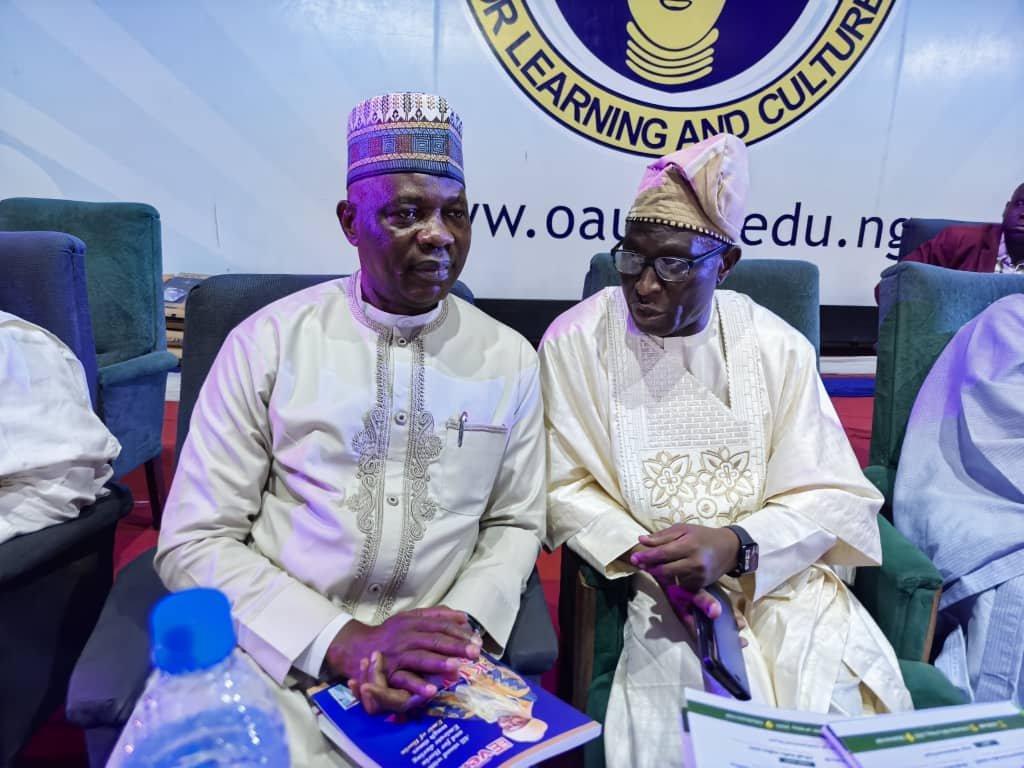The Comptroller-General of the Nigeria Customs Service (NCS), Bashir Adewale Adeniyi, has called for the implementation of a ‘Nigeria First’ initiative as a strategic tool to promote cross-border trade and strengthen national security.
Adeniyi made the remarks during a keynote speech at the annual conference of the Obafemi Awolowo University Muslim Graduates’ Association (UNIFEMGA), held in Ile-Ife, Osun State, Nigeria.
Addressing the theme, “Cross-Border Trade and Security Implications on the Nigerian Economy: Taking Advantage of Global Trade Dynamics,” Adeniyi emphasized the importance of aligning economic growth strategies with national security objectives.
He revealed that Nigeria recorded a total trade value of ₦196.94 trillion in 2024—a 179.3% increase over the previous year, despite ongoing security challenges along the country’s borders.
“Nigeria’s economic prosperity depends on how well we balance trade facilitation with effective security measures,” he said.
Adeniyi also noted that the NCS collected ₦6.1 trillion in revenue in 2024, surpassing its target by 20.2%, which he credited to reforms and innovation within the agency.
He gave a breakdown of regional security threats and their effects on trade:
In the Northeast, insurgency continues to disrupt trade routes. However, international collaborations, such as the World Customs Organization’s Project SPC++, are helping maintain trade activity in conflict zones.
In the Northwest, issues like banditry and kidnapping negatively affect the mining sector and livestock industry.
In the Southeast, political unrest has impacted key manufacturing hubs, while in the Southwest, the smuggling of arms, petroleum products, and banned goods remains a critical challenge. The NCS seized ₦35.29 billion worth of contraband in 2024, with another ₦7.7 billion intercepted in Q1 of 2025.

“These challenges give Nigeria two choices—either continue with reactive measures or strategically transform our experiences into regional leadership under the AfCFTA,” Adeniyi said.
He explained that the Nigeria First policy already influences Customs operations, including the decision to procure locally assembled vehicles for use by the Service. This move supports Nigerian manufacturers and conserves foreign exchange.
Looking ahead, the Comptroller-General outlined a comprehensive three-phase roadmap aimed at transforming Nigeria’s border trade landscape. In the immediate term, efforts will focus on the modernization of critical border posts such as Seme, which connects with Benin; Jibia, located along the Niger border; and Mfum, bordering Cameroon. These upgrades are intended to enhance efficiency and facilitate smoother cross-border trade.
Over the medium term, the plan includes the development of secure trade corridors equipped with advanced surveillance systems and rapid-response mechanisms. These corridors are designed to ensure the safe and seamless movement of goods while simultaneously addressing emerging security threats.
In the long run, the Customs Chief emphasized the creation of Special Economic Zones within border communities. These zones will serve as hubs for industrial and commercial activities, helping to stimulate local economies, generate employment, and promote deeper regional integration within the framework of the African Continental Free Trade Area (AfCFTA).
Adeniyi also warned of rising global trade tensions, including a recent 14% reciprocal tariff by the United States on Nigerian exports. He encouraged Nigerian businesses to diversify markets and fully leverage the $3.4 trillion African Continental Free Trade Area (AfCFTA) by using innovative systems like the Pan-African Payment and Settlement System (PAPSS), which facilitates trade in local currencies.
“By systematically applying these strategies, Nigeria can position itself as the secure gateway to West African markets,” he concluded.
The event was attended by high-ranking officials and dignitaries including Osun State Governor, Senator Ademola Adeleke; the Ooni of Ife, Oba Adeyeye Enitan Ogunwusi; and the Vice Chancellor of Obafemi Awolowo University, Professor Adebayo Simeon Bamire.






























































